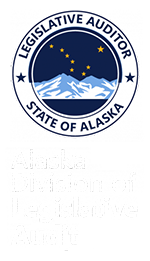| SUMMARY OF: | A Special Review of the Department of Commerce, Community, and Economic Development, Alaska Coronavirus Aid, Relief, and Economic Security Act, Small Business Relief Program |
Why DLA Performed This Audit
An audit of Alaska’s CARES Act Small Business Relief Program was requested to determine whether all eligible businesses were fairly treated and whether the process for procuring program operators complied with procurement laws. Additionally, the audit lists all grants distributed.
Report Conclusions
The audit concluded that the Small Business Relief Program disbursed approximately $282 million of CARES Act funds through the issuance of 5,754 grants; however, the distribution rate of grant funds fell far short of expectations. The State expected to distribute $150 million per month, yet only $18 million was distributed by the end of the program’s second month. Despite a federal extension to December 2021, authorization for the program lapsed at the end of June 30, 2021, at which point $823,000 of funds were still available and 669 grant applications were unprocessed. DCCED management was unable to explain why all of the funds were not awarded, because key decision makers were no longer employed by DCCED.
The program’s initial eligibility criteria was widely criticized as being too restrictive. Pressure to reach a larger number of Alaskan businesses and fully utilize available funding led DCCED’s commissioner to expand eligibility multiple times. The most significant modifications expanded eligibility to include commercial fishermen, allowed applicants to apply for both the Small Business Relief Program and federal CARES Act loan programs, and opened the program to businesses that served as secondary sources of income.
The audit found the grant application processing time was much slower than expected, partly due to the program design and partly due to the rate applications were deemed incomplete or inaccurate. Several program requirements were inconsistently considered and/or enforced by program operators. Some of the inconsistencies were the result of DCCED commissioner directives designed to speed up the approval process, some were the result of appeal decisions that were not applied to all applicants, while others were rooted in different interpretations by operators or between staff of the same operator.
Results of testing found a high rate of unallowable grant awards. Auditors tested 155 grants and identified at least one error for 39 percent of the grants tested. The program design increased the risk of unallowable grants and post-payment controls were ineffective. In total, 13 percent of the grant amounts tested were unallowable. The audit did not find evidence that grants were awarded in violation of the State’s ethics laws.
AIDEA staff generally followed procurement regulations; however, the procurement process discouraged potential bidders. Changes to the program’s design and eligibility criteria led to numerous request for proposal amendments, which delayed procurement and proved frustrating for potential bidders. A lawsuit that challenged how the program was authorized and designed also delayed procurement.
Findings and Recommendations
- DCCED’s commissioner should work toward recovering the unallowable grant payments identified in this audit.
- Alaska Industrial Development and Export Authority’s executive director should ensure the chief procurement officer follows procurement procedures and adequate documentation is maintained.

